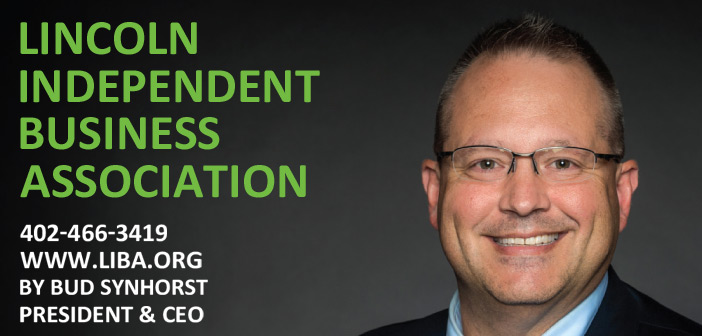If you were paying close attention to the Nebraska Legislature this year, you may wonder what happened or if anything good came from the session. I completely understand your dilemma pondering the outcomes of this session. With the end of session looming, we witnessed several different omnibus bills, or as some call them, “Christmas Tree” bills. This is where several bills are added as amendments to another bill. In some cases, there were 20-plus bills combined into one bill. Through this process there were even questions of whether the “single subject” rule was being followed. In the end, there were bills from the same committee put together to “get something done.”
One bill of interest, which LIBA supported, was LB 583. The statement of intent from the introducer says, “LB 583 would invest in Nebraska’s kids through the following mechanisms:
It inserts $1,500 per-student foundational aid within the TEEOSA (state aid to schools) formula; and
It expands state funding for special education by filling the gap between existing federal and State support and 80% of a district’s anticipated expenditures for special education. This function is outside of the TEEOSA formula.
The foundational aid per student is a great win for every student across Nebraska. This means whether a student is going to school in Lincoln or Chadron, there is aid provided by the State to help cover the costs of educating the student.
The discussion around property tax relief always includes questions on how much more funding the state will provide to meet its obligations to our students. LB 583 does that, where the state is providing aid for every student in Nebraska, including special education.
What does this mean for the local taxpayer? Great question! The ultimate decision will be up to local school boards to decide on their property tax asking and thus, the levy taxpayers will pay will be based on their recent valuation. The ultimate decision on how much to levy in property tax will be determined by the Lincoln Public Schools Board of Education later this year. Based on this new foundational aid provided by the state, conventional wisdom would be to expect a significant decrease in the property tax asking by LPS, which will require a significant decrease in the levy charged to each taxpayer.
Over the course of the next few months, LPS will be working through its budget process with each of the schools and departments to set their final budget. It is our responsibility to make sure we are contacting our elected officials at LPS and encouraging them to remain modest in their budget process to be considerate of those paying the bills – local taxpayers. We must make sure to engage with our elected representatives on the LPS Board to encourage them to work on a budget lowering the property tax levy. On average, valuations in Lancaster County are increasing by about 18%-19%. Now is the time to make our voices heard with our LPS Board of Education. You can find out more about the members of the Board here: www.home.lps.org/board.
Last year, LIBA was the only testifier when the LPS budget was open for comment. The LPS budget is nearly HALF BILLION dollars, and it is our duty to show up to have the conversation with the Board on their budget. Hopefully this year more will be there to engage in the process. Remember, decisions are made by those who show up!

